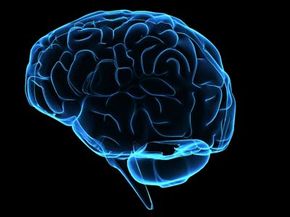The phenomenon is rather complex, and déjà vu researchers have different theories about why it happens. Swiss scholar Arthur Funkhouser suggests that there are several "déjà vu experiences" and asserts that to better study the phenomenon, we need to understand the nuances between the experiences. In the examples mentioned above, Funkhouser would describe the first incidence as déjà visite ("already visited") and the second as déjà vécu ("already experienced or lived through").
As much as 70 percent of the population reports having experienced some form of déjà vu. More déjà vu incidents occur in people 15 to 25 years old than in any other age group. It often becomes less frequent as one gets older.
There is not one clear answer for these reported déjà vu experiences. There are theories that range from a mismatch in part of the brain, causing people to mistake the present for the past, to it being a "past life" experience.
Temporal Lobe Epilepsy
Scientists have firmly associated déjà vu with temporal lobe epilepsy. Reportedly, déjà vu can occur just prior to a temporal lobe seizure.
“About 60 percent of people with epilepsy have something called a focal seizure, which is in just one part of the brain," says Dr. Roderick C. Spears, a neurology specialist. This can be in the same part of the brain where memory is stored: the temporal lobe.
This theory suggests that people suffering a seizure of this kind can experience déjà vu during the actual focal seizures or in the moments between convulsions.
Wish Fulfillment
Since many types of people have experienced déjà vu — regardless of whether they have a medical condition — there is much speculation as to how and why this phenomenon happens. Several members of the psychological science field attribute déjà vu to simple fantasy or wish fulfillment.
Stress and Fatigue
Some research links déjà vu to stress and fatigue, with people with higher education and who travel a lot experiencing the phenomenon.
